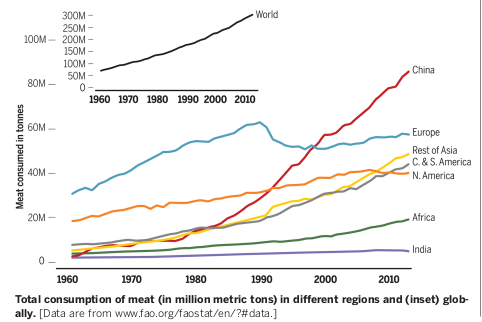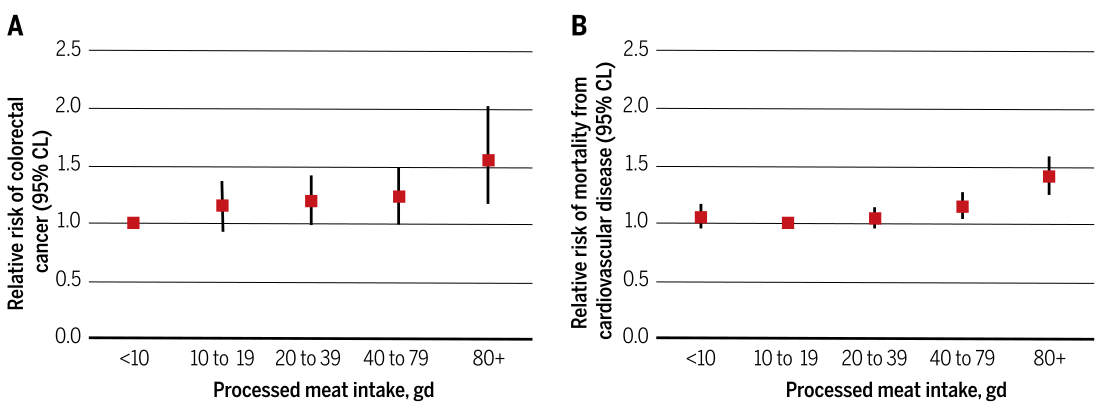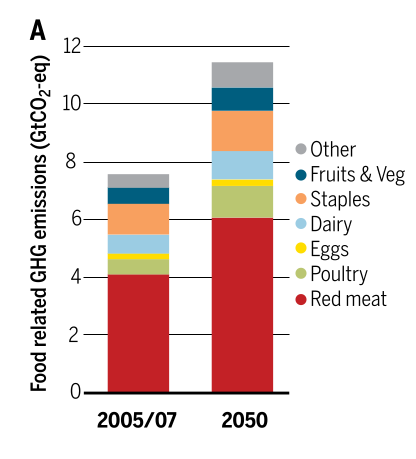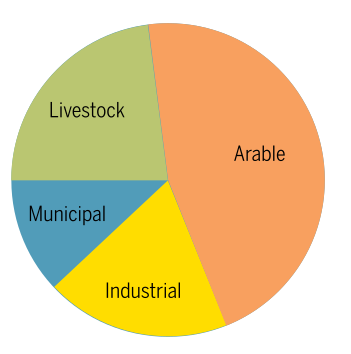opinion: Meat Consumption: Good or Bad?
By Julien Hernandez Lallement, 2021-03-22, modified 2021-03-22, in category Opinion
By Julien Hernandez Lallement, 2021-03-22, modified 2021-03-22, in category Opinion
In August 2020, the most important event of my life so far happened: I got my first baby :) Matteo was born on August 23rd and it has been a blessing (95%) and a sleep disruptor (5%) since then. OK, more like 90/10 ;)
Breast fed, the first months were quite worries-free when it came to nutrition. Quite fast, some people asked "when are you starting with more solid food?". WHO recommends to start at approximately 6 months old with that. I did not do research background, and simply trusted that information.
Now, other people asked, knowing that I am vegetarian, "what will you do about meat?". Good question. My wife, being an occasionally meat eater, also worried that meat might be important for infant growth, which is a valid concern of course.
After some weeks of procrastination, the time has come for little Matteo to eat other food than breast milk, and while carrots and sweet potatoes are being smashed in the kitchen, I sat at the computer doing some research. I thought I would write about this as a source to give people that question my dietary decision, which I knew, and now can prove, makes sense (sort of).
A few points before I start:
This article focuses on the benefits of eating or not eating meet from an individual perspective. I won't discuss here the problems raised by vegetarians that eat kilograms of rice from far away lands & tons of soja that required much water to be harvested; same goes for meat eaters that import Kobe beef or Argentinan rumsteak that came not only at great expense to produce the meat, but to move it across lands. These concerns are perfectly valid, but outside the scope of this opinion piece.
This article is strongly based on this and this article, which I found great in reviewing the current state of the art.
Let's start with some general numbers. See here for reference. Meat consumption is raising at high pace (Figure 1).
 Figure 1 | Some numbers on meat consumption world wide.
From Godfray et al. 2018
Figure 1 | Some numbers on meat consumption world wide.
From Godfray et al. 2018
While the methodology to measure meat consumption is multi folded, most of them concur in concluding that meat consumption has increased globally, in particular in Asia, South America and to a minor extend, in Africa. Using available data, studies estimated an average global consumption of meat of approximately 122 g/day (mostly pork & poultry, but also beef, sheep, goats, and other animals). Using well established estimators, studies suggest a "rise in wealth will lead to an increase in meat consumption of ~100% between 2005 and mid-century" (see here). While other reports (see here for UN report that concludes on a 76% increase) use other methodology, all concur that meat consumption is likely to rise in the coming decades.
What drives meat consumption? Well that is a fascinating question I think, but outside the scope of this article. See here & here for starting references. I'm considering writing another article related to meat consumption motivation & drivers, because this might help some readers and interlocutors reflect on their dietary model. Oh and see here for a last cool reference on the matter.
Effects of meat consumption
Given the premise that meat consumption is high, increasing, and likely to increase over the coming decades, I will go
through a series of findings that support or not the consumption of meat. Note that fish and sea animals are excluded
from analysis in this article. I will do some additional research regarding toxicity level, but have little time lately...
Health Effects
Measuring effects of meat consumption on human health is very tricky. Maybe the most typical approach is to run
prospective epidemiological cohort studies that involve a high number of participants (>20.000) to monitor
dietary intakes and health status over years. In turn, the data allows to identify relationships between meat consumption and
the emergence of diseases.
As if that was not challenging enough, another issue is that, while a study on its own might be valid, it is important to take a meta-analytical perspective, as I argued in another post, which might and should not combine studies using different methodologies. This makes it even more complicated to obtain meta-analytic observations on meat consumption.
Despite these challenges, it is well known that meat is a good source of energy which contains essential nutrients, including protein and micro-nutrients such as iron, zinc, and vitamin B12. However, all of these nutrients can be obtained through other food sources if planed carefully, as illustrated by a large proportion of the highly vegetarian indian population, which, by the way, show decrease cardiovascular diseases as non-vegetarian equivalent population (see here). But more of that below.
It should be said that animal products can make a positive difference in some low income countries where other food source are not readily available. See here or here, although the latter study stated that further longitudinal studies are required for confirmation.
In Western countries, mortality rates are higher in subjects who regularly eat red and processed compared to lower intake
subjects (not necessarily vegetarians). Interestingly I found no or moderate increase in health risk was observed for
the consumption of poultry. See here, here
and here.
A few words of caution:
Be careful, not all studies use a vegetarian population as comparison. The second study for instance concluded that
white meat intake reduced health risks, but the comparison was made with read and processed meat eaters, not vegetarians.
Note as well that the increase in health risk was modest and not drastic. However, still statistically significant.
* Finally, high meat intakes can be comorbid with other major risk factors such as smoking, alcohol consumption,
and obesity and all studies did not necessarily control for these factors.
While the association between red meat and healt issues remains modest, one clearly demonstrated relationship is the one between processed meat, (and to some extend red meat) with colo-rectal cancer (Figure 2). As a matter of fact, processed meat is classified as carcinogenic to humans, while red meat is classified as probably carcinogenic (see here). Processed meat consumption is also associated with other diseases, such as diabetes and cardiovascular diseases, which is not the case (to my knowledge) for read meat. Note that a thorough article (from 2010, so already old) reviewed several articles claiming an association between red meat and multiple diseases, and found a series of methodological limitations such as cooking methods (processed meat) and combining different animals together. I do not have time to run quality checks on the studies though...And that is unfortunate.
 Figure 2 | Increased risk of health issues with increasing volume of processed meat intake.
From Godfray et al. 2018
Figure 2 | Increased risk of health issues with increasing volume of processed meat intake.
From Godfray et al. 2018
It should be noted that published work that used modeling trained on real world data found conclusions that went along with what I mentioned earlier. Transfering from meat- to plant-based diet is foreseen to reduce risk of cardiovascular diseases (see here), stroke (see here), and diabetes (see here), reducing overall mortality by 6 to 10% (see here). Interestingly, the last article cited here also looked at environmental effects of meat consumption, and concluded positive effects on climate change driven by overall dietary change. More of that below.
My Conclusions on Health Effects
What I take from this is that processed meat and most likely read meat are linked to a series of diseases that could emerge
in mid to later lifetime. While these causal links are quite hard to identify, several studies have concurred in such
associations, which require nonetheless more scrutiny and more powerful statistical approaches (Bayesian statistics have
been used in one of the study, which, thanks to the concepts of prior, could increase accuracy of the findings).
Personally, these findings have convinced me that processed and probably red meat is overall deleterious for the health. I will not propose such food to my son at home, and will instruct related people to not propose it outside of home. That poultry does not seem associated with health issues will not change my behavior: I remain vegetarian, for other reasons than sole health. However, my principles will not necessarily be the ones of my son, and we decided that he would be allowed consume poultry if he wants, while outside of home (related family for example). This is a tricky issue though, and I will remain informed to make sure I am not taking a dangerous path for my son.
Environmental Effects
OK, so my wife & I concluded that we would forbid processed and red meat at all levels, while allowing poultry outside of home. That was based on health criteria, as discussed before.
What about other effects of eating poultry, as well as eggs, milk & other animal derived products (I am not a vegan)?
One of the most obvious effect that has been discussed recently is the environmental impact that animal stocks have on the planet. Poultry produces less emissions than ruminants (see here or here). OK, good for us. But still, how much does it produce?
 Figure 3 | Meat production and Green House Gases.
From Godfray et al. 2018
Figure 3 | Meat production and Green House Gases.
From Godfray et al. 2018
Above, you can see the percentage of total Green House Gases (GHGs) emissions for the period between 2005/2007 and the projections for 2050. By limiting our consumption to poultry & dairy, I read that I would be contributing to ~2% of the total human emissions. Acceptable? That's for each person to decide. Note however how dairy's contribution to emissions is higher than the one for poultry.
What about other metrics? The same review that I am extensively using for this post also reported water use:
 Figure 4 | Proportion of freshwater use per category. Data are from FAO AquaStat 2016
From Godfray et al. 2018
Figure 4 | Proportion of freshwater use per category. Data are from FAO AquaStat 2016
From Godfray et al. 2018
As noted by the authors : "Agriculture uses more freshwater than any other human activity, and nearly a third of this is required for livestock". Loads of water then...And I am not mentioning the fact that retrieving "blue water" (eg, rivers) competes with other activities or that forest are being cut down to plant crops to feed livestock...
Now again, it seems that, while there are strong fluctuations in water footprint depending on the type of animals, "[...] beef farming is more than three times as water intensive as chicken production per kilogram of meat." See here for reference. Again good for us I guess, but still the dairies should be added to this category as ruminant, not poultry...
My Conclusions on Environmental Effects
We are trying to find a balance here between our health, out footprint and our happiness...Leaving poultry out of home, food orders
and school will make our children eat it, if they want to, maybe 15 days per year (gross calculation). We thought that the
environmental footprint of it is acceptable.
Now dairy...they do seem to produce a lot of emissions and require ay lot of water. That's annoying because being half french,
I love love love cheese. But still, data is data, so we decided to limit cheese to week ends only. We already suppressed
milk due to digestive reasons, and use solely plant based milk.
Ethical Aspects
There is also one important component in this decision which is Ethics. Is is oay to instrumentalize life for feeding reasons, if (and as supported by science) we can survive perfectly fine without eating meat...That is for another post and up for debate though, so I won't be going into details here. Feel free to reach out if you want my opinion on this matter though :)
Overall Personal Conclusion
This is what we decided after reading out a bit on eating meat, from different perspective:
- For ethical reason, I do not eat meat. However, this is my decision and I do not want to impose it to my children.
As long as eating something is not proven to be deleterious for health, the kids should be able to eat it as long as
they eventually hear about and understand the consequences of their actions on other beings.
- Since processed and red meat seem associated with health issues, we ban them from the family diet.
- Since poultry does not seem associated with health issues, we let our children eat it, outside of home and in controlled
environments (poultry need ot be healthy and raised in good and natural environment).
- We limit dairy products to week ends, to limit our contribution to ruminant livestock's emissions.
- We plan our children's diet carefully to make sure they obtain all required nutrients from a week's food intake.
That's it! I'd be curious to hear about your opinions on my data-based decisions. Note that given the little time I have,
I spend approximately 8h of time to review some papers and put together some graphs and make decisions.
This should not be taken as a thorough review of the meat consumption state of the art